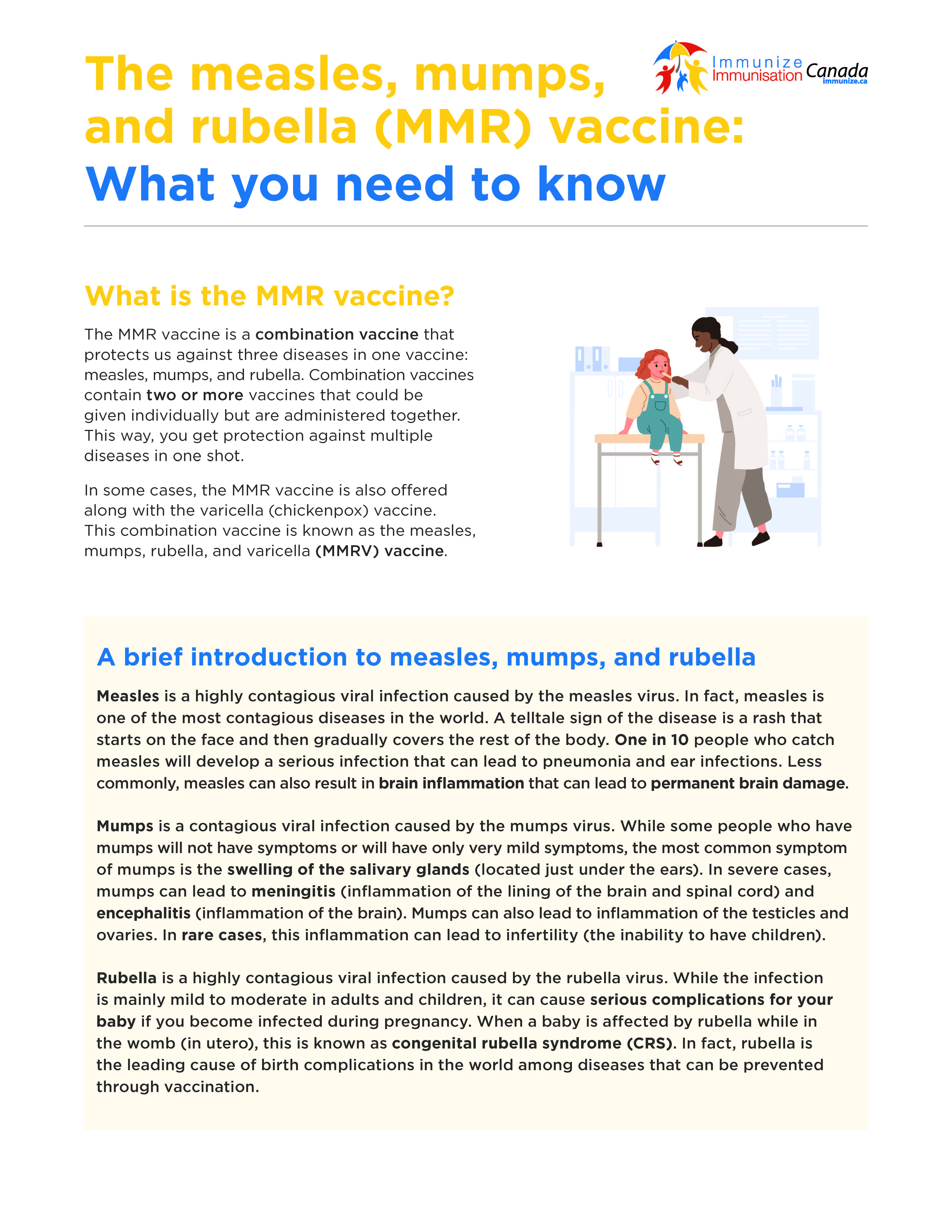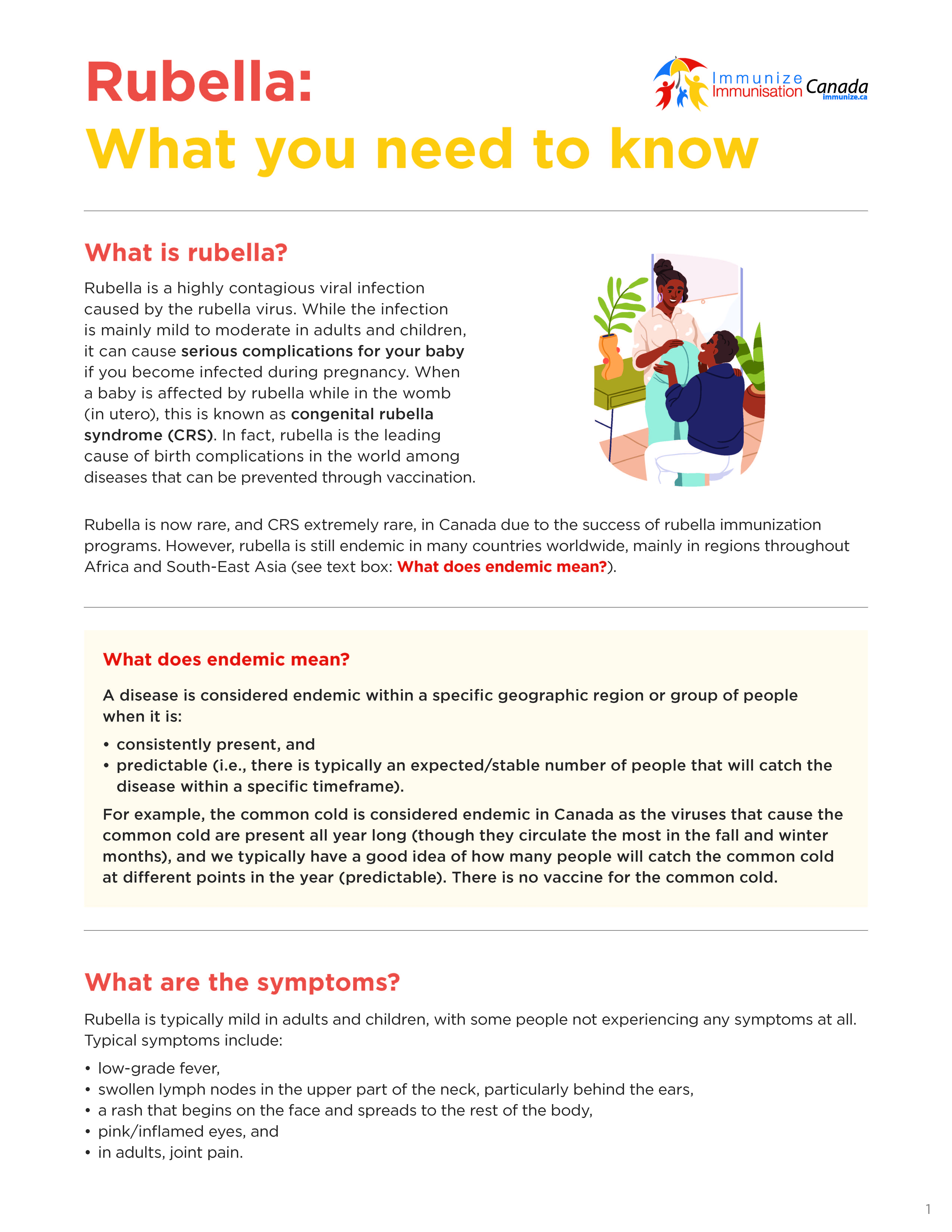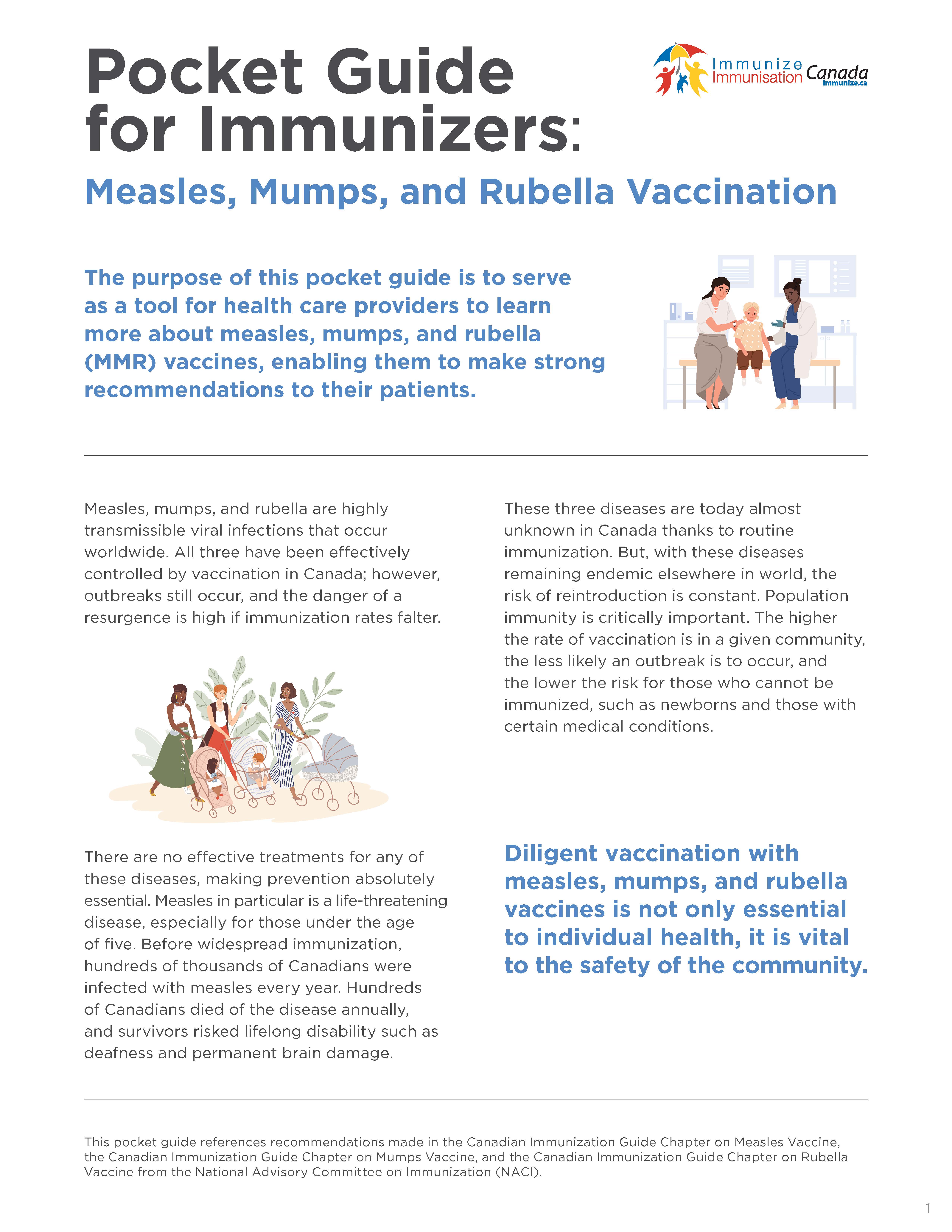Rubella
Rubella is a highly contagious viral infection caused by the rubella virus. Rubella is typically mild in adults and children, with some people not experiencing any symptoms at all. Typical symptoms include low-grade fever, swollen lymph nodes in the upper part of the neck, particularly behind the ears, a rash that begins on the face and spreads to the rest of the body, pink/inflamed eyes, and in adults, joint pain.
While anyone can catch rubella, it is most serious in people who are pregnant, due to the possibility of miscarriage and the risk of congenital rubella syndrome (CRS), or when the baby is affected by rubella in utero. CRS can lead to may birth complications, including heart problems (i.e., congenital heart disease), eye problems (cataracts), deafness, intellectual disabilities, and diabetes, amongst others.
Rubella is now rare, and CRS is extremely rare, in Canada due to the success of rubella immunization programs. However, rubella is still endemic in many countries worldwide. Travellers to areas where rubella is still commonly spreading, such as areas outside the Americas, are at greatest risk of being exposed to the virus.
Check out our resources on rubella immunization and share with your network!
Campaigns and Awareness Materials

For the Public
For Healthcare Professionals
Pocket Guide for Immunizers
The purpose of this pocket guide is to serve as a tool for health care providers to learn more about measles, mumps, and rubella (MMR) vaccines, enabling them to make strong recommendations to their patients.
This pocket guide references recommendations made in the Canadian Immunization Guide Chapter on Measles Vaccine, the Canadian Immunization Guide Chapter on Mumps Vaccine, and the Canadian Immunization Guide Chapter on Rubella Vaccine from the National Advisory Committee on Immunization (NACI).
NACI Statements
Campaigns and Awareness Materials
There are no campaigns or awareness materials available at this moment




